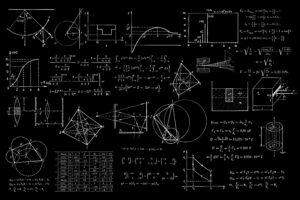Understanding the Divide: Quantum Physics vs. Nuclear Physics


Quantum physics and nuclear physics are two important branches of physical science that often intersect yet remain distinct in their focus, methods, and real-world applications. Both play vital roles in advancing modern technology and scientific knowledge. However, they differ significantly in terms of concepts, career paths, and the impact they have on industries and society. Exploring these differences can help students and science enthusiasts better understand which field might suit their interests and goals.
Core Concepts of Quantum Physics
Quantum physics, also known as quantum mechanics, examines the behavior of matter and energy at the most minute scales, typically at the atomic and subatomic particle levels. It delves into phenomena that defy classical physics, such as superposition, entanglement, and quantum tunneling. These concepts are not only fascinating but also essential for understanding how the universe works on a microscopic level.
One of the most intriguing aspects of quantum physics is that particles can exist in multiple states simultaneously until they are measured or observed. This strange behavior challenges our everyday understanding of how objects behave. Quantum physics also explains how particles can instantaneously affect each other, even when large distances separate them. These ideas may sound like science fiction, but they are supported by decades of experimental data.
Core Concepts of Nuclear Physics
On the other hand, nuclear physics focuses on the components and behavior of atomic nuclei. It examines how protons and neutrons interact, how nuclear reactions occur, and what forces are involved in holding nuclei together. While it may sound narrower in scope, atomic physics has profound implications for energy production, medicine, and national defense.
Nuclear physics helps us understand processes like radioactive decay, nuclear fission, and nuclear fusion. These processes are not only central to the operation of nuclear reactors but also play critical roles in the life cycle of stars and the formation of elements in the universe. Unlike quantum physics, which explores the abstract and often intangible, nuclear physics usually deals with phenomena that have visible and measurable effects in the real world.
Educational Pathways and Careers
Studying quantum or nuclear physics requires a strong foundation in mathematics and general physics. However, the academic and career pathways in these fields can vary significantly. A student interested in quantum physics might pursue degrees in theoretical physics, focusing on complex equations and abstract concepts. Careers in this area often lead to research positions in universities, government labs, or tech companies involved in quantum computing and information science.
Meanwhile, those drawn to nuclear physics may pursue degrees in applied physics or engineering, especially atomic engineering. Career opportunities are often tied to energy companies, national laboratories, and industries involved in medical imaging or radiation therapy. While both fields offer opportunities in academia, nuclear physics tends to have more direct industry applications, especially in the energy and healthcare sectors.
Applications in Technology and Society
Quantum physics has become increasingly important in the development of cutting-edge technologies. One of the most exciting areas, promising to revolutionize how we process information. Quantum encryption and quantum sensors are other emerging applications that could reshape communication and navigation technologies. These innovations rely heavily on the principles of quantum mechanics, although the practical devices are still in the early stages of development.
Nuclear physics, in contrast, has long-standing applications that already impact daily life. Nuclear power plants generate electricity using fission, providing a significant portion of the world’s energy with minimal carbon emissions. In medicine, atomic techniques are used in diagnostics and treatment, including PET scans and radiation therapy for cancer patients. These technologies are well-established and continue to evolve as scientists improve safety and efficiency.
Intersections and Overlaps
While distinct, quantum physics and nuclear physics are not entirely separate. Many atomic phenomena are best explained using quantum principles. For instance, the behavior of protons and neutrons within a nucleus can be modeled using quantum mechanics. Concepts like quantum tunneling are critical in explaining nuclear fusion, the process that powers the sun.
Researchers often require knowledge of both fields to understand complex systems fully. Some scientists even work at the intersection, developing quantum models for nuclear interactions or using nuclear systems to test quantum theories. This overlap illustrates the interconnectedness of scientific disciplines, particularly when addressing fundamental questions about the universe.
Challenges and Future Prospects
Both quantum and nuclear physics face their challenges. In quantum physics, the biggest hurdle is developing practical devices that can operate reliably outside of lab conditions. Quantum computers, for example, are highly sensitive and require extreme environments to function. Scientists are also working to understand better the philosophical implications of quantum theory, including the nature of reality itself.
Nuclear physics, on the other hand, must address public concerns about safety and environmental impact. While nuclear energy is efficient and clean in terms of emissions, accidents, and waste disposal remain significant issues. Researchers are exploring safer reactor designs and fusion energy, which promises to be safer and more sustainable than traditional nuclear power.
Quantum physics and nuclear physics offer two unique lenses through which to understand the natural world. While they share some common ground, each field has its concepts, career paths, and real-world applications. Quantum physics pushes the boundaries of what we know about matter and energy on the most minute scales, while nuclear physics provides powerful tools for medicine, energy, and scientific exploration. Whether you’re drawn to abstract theories or practical technologies, both fields offer exciting opportunities for discovery and innovation.
